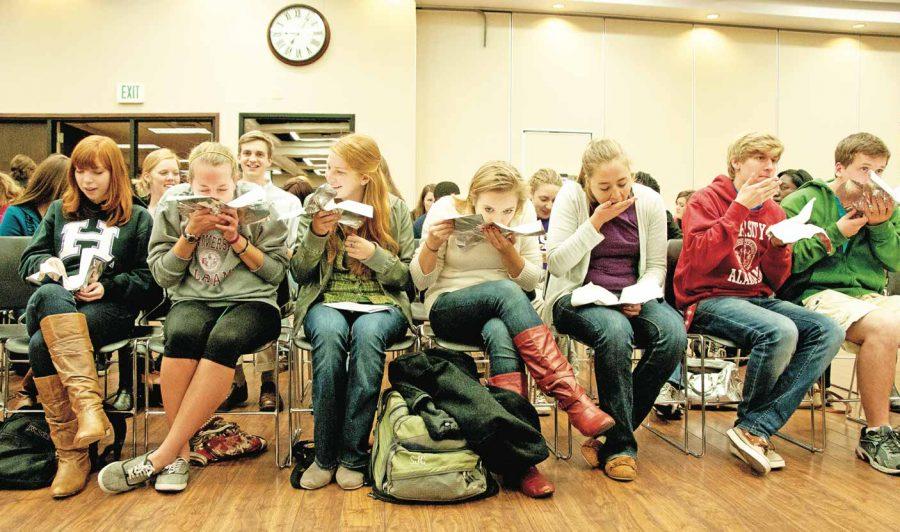Students will have the opportunity to gain a new perspective on hunger related issues at the annual Hunger Banquet, which serves to bring awareness to hunger issues in Alabama.
Hosted by the Community Service Center, the banquet will be held Tuesday at 7:30 p.m. in the Ferguson Center Ballroom.
Camille Driver, student director for the CSC and leader for the Hunger Banquet, said the banquet serves as an.
“At this interactive event, the place where you sit and the meal that you eat, are determined by the luck of the draw,” Driver said. “The Hunger Banquet allows many to gain a new perspective on the root causes of hunger and poverty and creates motivation to do something to help.”
The Hunger Banquet was originally an event designed by Oxfam International, an organization that fights poverty, to teach students about global hunger, but this year’s iteration will focus on domestic hunger.
“For the past five years, Alabama has put on the Oxfam Banquet, or the Hunger Banquet, with the same script and everything like that,” Driver said. “[This year] we’re not going to concentrate on global food insecurity, but instead we’re going to focus on food insecurity in the United States, and then more specifically in Alabama.”
About 50 people attended the first Hunger Banquet at the University, but that number grew to almost 200 last year.
Chisolm Allenlundy, an assistant student director for Hunger and Homelessness Awareness, said participants would be drawing for a variety of meals to depict the variations of economic groups in Alabama.
Allenlundy said a “poor meal” would consist of a simple sandwich or hot dog and some water and a “middle class meal” would consist of something like a burger, chips and water. An “expensive meal” includes a generous helping of some main dish, several sides, a dessert and iced tea, all with a server to deliver the meal, as opposed to the other meals which will not be “served” in that sense.
In previous years, income levels were separated into different groups. This year, instead of separating income groups, students will sit together at round tables.
“A person that has a low-income meal could be sitting right next to a person with a high-income meal,” Driver said. “We did that because this year we really want the students to see the difference in the quality of the food. Even in America I think it’s so easy to say, ‘Oh, Americans are so lucky and so blessed, we’re in America.’ But what they don’t realize is low income, the average meal is a little over a dollar. High income, on average, is about $16. There’s a huge difference in spending $16 or $17 on a meal and having four quarters to spend on a meal.”
Joey Neff, an assistant student director for Hunger and Homelessness Awareness, is involved with the planning and advertising for the banquet. Neff said the CSC has revamped the banquet from what it was like in previous years.
“In the past, the focus of the event has been worldwide hunger awareness,” Neff said. “While that’s an incredibly important topic, it’s very impersonal to most UA students, and most Americans in general. We refocused the event to focus on the United States, Alabama and Tuscaloosa.”
Neff said the CSC hopes to show students that hunger is not just an issue in less fortunate areas of the world. He said food insecurity is very much an issue in the U.S., and Alabama is at the top of the list. The CSC hopes students can leave the event with their eyes opened to hunger related needs in West Alabama and feel motivated to take action to fight the issue.
Since the banquet will focus on the United States and Alabama this year, the CSC thought it would be appropriate to serve traditional American foods, but there will be surprises during the evening.
Students interested in participating in the Hunger Banquet can sign up on UA’s SLPro website at slpro.ua.edu. Service hours and Panhellenic points are offered.









